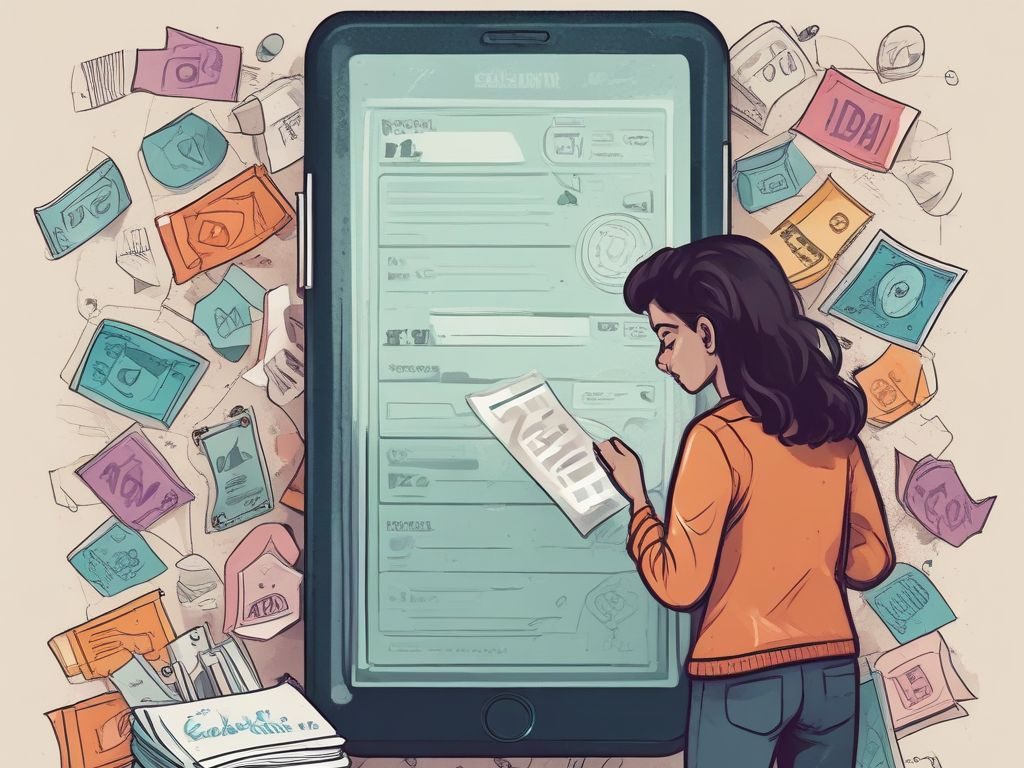Physical Address
304 North Cardinal St.
Dorchester Center, MA 02124
Physical Address
304 North Cardinal St.
Dorchester Center, MA 02124

When I got to college, money felt like this mysterious thing that vanished before I could say “budget.” Tuition, rent, books, groceries — it all added up faster than I expected. And let’s not talk about personal finance for college students looming overhead. It was like constantly juggling while someone kept tossing more balls (Investopedia, 2023).
What finally clicked for me was realizing managing money in college isn’t just about surviving month-to-month—it’s about building habits that save you from future headaches. Imagine making small tweaks now, like cutting night-time delivery meals or tracking every coffee purchase; it amazed me how much those changes added up. Whether you’re earning a little on the side, relying on aid, or trying to not overdo it on your credit card, being mindful now lays the groundwork for a solid financial life (NerdWallet, 2023).
So, I put together seven genuine, no-nonsense tips I wish someone had just handed me freshman year. These are the kinds of tricks you can start using tonight—no fancy finance degree required. From setting up a manageable budget to getting smarter about debt, each tip is one step closer to feeling in control—not stressed—about your money. Plus, if you want practical tools, you can check out helpful resources like this guide on managing student loan debt or see how others have paid off six-figure balances and still stayed sane (like this inspiring story). Let’s jump in—your future self will thank you!

Money stress? Let’s ditch it. Seriously, managing your cash can be way easier than you think—thanks to mobile banking apps. Just grab one, and boom: your balance, recent transactions, and important alerts are all in your pocket.
Amerant Bank’s app? Total lifesaver for students. Pay bills in seconds, get alerts if something’s off, and send money to friends with Zelle—no headaches. It keeps your spending in check without making you feel like your money is running you.
They even have student checking accounts you can use straight from your phone or smartwatch. Coffee shop? Library? Dorm? Doesn’t matter. You’re in control wherever you are.
Haven’t tried mobile banking yet? Now’s the time. Chime, Ally, Capital One—they’re all student-friendly, no monthly fees, and early direct deposit means you can actually enjoy your money instead of stressing over it.
Okay, so budgeting. I know, I know… it sounds boring and stressful. But hear me out—it doesn’t have to be. Honestly, it’s just about knowing where your money goes instead of letting it vanish into thin air.
Try this: write down everything you earn and spend for a month. Seriously, everything. Coffee, snacks, random Amazon stuff. You’ll probably be like, “Wait… where did all my money go?” (Investopedia, 2023).
Then, figure out what’s really important. Essentials—rent, groceries, getting around. Non-essentials—yeah, the fun stuff: takeout, Netflix, a silly impulse buy. Don’t feel bad about it, just know it’s optional (NerdWallet, 2023).
Honestly, apps help. Mint, YNAB, even a messy Google Sheet. Pick one. Set limits you can actually live with. The point isn’t to starve yourself or freak out about spending—it’s to avoid debt and still save for things you actually care about.
And remember: budgeting isn’t “never have fun.” It’s about choices. Do you grab that gadget now, or stash cash for a spring break trip with friends? That’s it. Suddenly, controlling your money feels… doable. Maybe even kinda empowering.

Just relying on one source of money as a student? Yeah… bad idea. Really. It’s way safer—and less stressful—to have a few ways to earn (Upwork, 2023).
Think part-time jobs, little side gigs, freelancing… whatever fits your schedule. Upwork, Fiverr, Tutor.com—you can write, edit, tutor, do design… all from your laptop. No commute, no stress.
Lots of colleges have work-study programs too. Basically, you get paid to work on or near campus without missing class. Like at the University of Miami—they hire thousands every year. Easy way to make some cash.
Oh, and don’t forget stuff you don’t need. Old textbooks, clothes, electronics… sell ‘em on Facebook Marketplace or eBay. A bit of effort, a few extra bucks. Easy.
Multiple income streams aren’t just about cash. They take pressure off, teach you real skills, and give experience for later. Plus, it feels great knowing you’re not stuck with just one paycheck.
Keeping your spending low? Super important. Seriously. You can make all the money you want, but if it vanishes too fast… stress levels skyrocket 😅 (Student Beans, 2023).
Student discounts? Use them. Everywhere. Stores, restaurants, movies… just flash your student ID. Sites like Student Beans and UNiDAYS are packed with deals—from clothes to software subscriptions. Don’t sleep on it.
Coupons and deals = lifesavers. Groupon, RetailMeNot… check before you buy anything. Even planning groceries with coupons or buying in bulk saves a ton.
Cook at home. Way cheaper than takeout. Usually healthier too. Take the bus, bike, or walk. Share rent and utilities with roommates. Little tweaks = big savings.
Bottom line: watch your money. Skip impulse buys. Save a bit here and there. And yes—you can still treat yourself sometimes without guilt 😉
Opening a savings account? Big move. Seriously. Even saving a little bit on the regular adds up fast. You’re building an emergency fund and putting money aside for future goals—without even feeling it.
Look for accounts with good interest rates and no monthly fees. Online banks usually give better deals than the old-school ones. Amerant Bank, for example, has savings accounts that are perfect for students who want to grow their money safely.
Saving regularly isn’t just about cash. It teaches discipline. Gives peace of mind. Knowing you’ve got money for surprises—or even fun opportunities—means less stress and more freedom.

If you have student loans or other debts, creating a clear repayment plan is essential. Understand the total amount owed, interest rates, and repayment terms to avoid surprises (Federal Student Aid, 2023).
Use tools like student loan calculators to estimate monthly payments and the impact of extra payments. Consider repayment options such as income-driven plans or refinancing if you qualify — these can lower monthly payments or reduce interest costs over time.
Prioritize paying off high-interest debt, like credit cards, before focusing on student loans with lower interest. Making consistent payments, even if small, helps build good credit and prevents debt from spiraling.
Got student loans or other debts? Yeah… you really need a plan. Seriously. First, figure out how much you owe. Interest rates. Repayment terms. Know it all. No surprises 😬 (Federal Student Aid, 2023).
Mess around with student loan calculators. See what your monthly payments could be. Throw in extra payments when you can—it actually helps. Check out options like income-driven plans or refinancing. They can lower your payments or save you interest.
High-interest debt first. Credit cards, for example. Then the lower-interest stuff, like student loans. Even tiny, regular payments count. They build your credit and stop debt from spinning out of control.
Money stuff as a college student? Yeah… it can be a pain. But honestly, with a few smart moves, it’s totally doable—and even kinda fun. Banking apps? Use them to track your spending. Budgets? Keep them real. Side hustles and extra income? Definitely. Handle your debt smartly, and boom—you’ve got a solid money foundation (Investopedia, 2023).
The habits you build now? They stick. Start small. Keep going. Celebrate the little wins. Your college years are the perfect time to learn, grow, and actually take charge of your money 💪📈.
Navigating Financial Decisions: Real-Life Examples from Financial Coaches 🔗